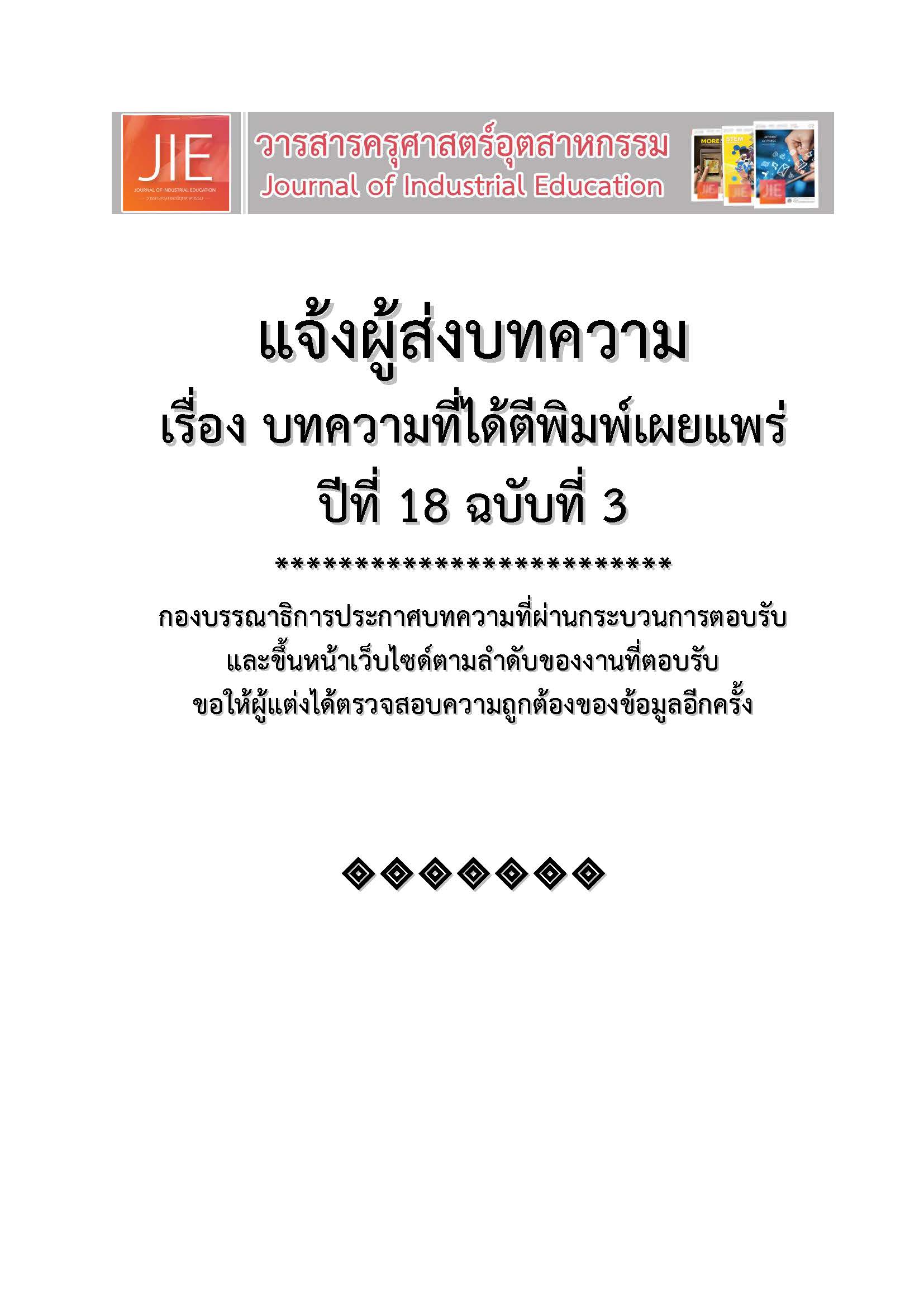THE SYNTHESIS OF A COLLABORATIVE LEARNING MODEL USING PROBLEM - BASED LEARNING ON CLOUD TO ENHANCE CRITICAL THINKING OF UNDERGRADUATE STUDENTS
Keywords:
Collaborative Learning, Problem-Based Learning, Cloud Learning, Critical ThinkingAbstract
The purposes of this research were to Synthesis and evaluate the design of Model of Collaborative Learning Using Problem - Based Learning on Cloud to Enhance Critical Thinking of Undergraduate Students. The sample group in this research was 9 experts are Key informants that specialize in Teaching to design, Problem-based learning, Critical thinking, and Cloud learning. The research procedure consisted of seven steps as follows: 1) studied journals, texts and related research, 2) drafted conceptual framework, 3) created assessment tool, 4) assigned experts on an In-depth Interview, 5) Data collection by In-depth Interview, 6) summarize and analyzed data, and 7) added improvement to the model. Tools of this research were Assessment forms of collaborative learning. The research results were as follows: Model of Collaborative Learning Using Problem - Based Learning on Cloud to Enhance Critical Thinking of Undergraduate Students. Consist of three elements: 1) input Factors is Learning objectives, Instructor, learner, and Cloud learning 2) The Learning process is Preparation before Learning, Collaborative Learning, Appraising stages and 3) Output is work, students learning achievements, and Critical thinking. The evaluation results in Model of Collaborative Learning Using Problem - Based Learning on Cloud to Enhance Critical Thinking of Undergraduate Students with an overall rating at a highest levels. ( = 4.61, S.D. = 0.52) Which is appropriate can be used in actual learning and teaching.
References
Worakamin, D. ,Rakamnuaykit, P. and sayfa, Y. 2016. A study of analytical thinking ability and public mind in order to develop the potential of being good people and smart students of Thai students. Bangkok, Dhurakij Pundit University.
Sittichok, T. 2015. Critical Thinking in Social Studies Learning Process. Journal of Humanities, Social Sciences Thaksin University, 9(2), pp. 87-101.
Sudsang, W. 2007. Analytical thinking certainly has value and creativity. Bangkok : Chomromdek.
Wei, G. W. 2012. The use of wiki to facilitate critical thinking, Proceeding of IEEE International Conference on Teaching, Assessment, and Learning for Engineering (TALE), H3C-1 – H3C-3.
Haghparast, M., Hanum, N. F., and Abdullah, N. 2013. Modeling an e-learning tool to cultivate critical thinking in students based on information needs and seeking behavior, Proceeding of 2013 IEEE International Conference on Teaching, Assessment and Learning for Engineering (TALE), pp. 521-526.
Eteokleous, N., and Ktoridou, D. 2012. Community of inquiry developed through cloud computing for MIS courses, Proceeding of 2012 IEEE Global Engineering Education Conference (EDUCON), pp. 1-4.
Alshuwaier, F.A., Alshuwaier, A.A., and Areshey, A.M. 2012. Applications of cloud computing in education, in Proceeding of the 8th International Conference on Computing and Networking Technology (ICCNT), pp. 26-33.
Ennis, R. H. 1993. Critical Thinking Assessment. Theory into practice, 32(3), pp. 179-186.
Ennis, R.H. and Millman, J. 1985.Cornell Critical Thinking Test Level Z. Pacific Grove, CA: Midwest Publications.
Eteokleous, N. and Eteokleous, D. 2012. Community of inquiry developed through cloud computing for MIS courses. Proceeding of 2012 IEEE Global Engineering Education Conference (EDUCON), pp. 1-4.
Wannapiroon, P. 2008. Development of A Problem-Based Blended Learning Model to Develop Undergraduate Students' Critical Thinking. Chalalongkorn University, Bangkok.
Jaidee, M. and Sanrach, C. 2013. The Development of a Model for Problem-based Learning Cooperates with KWL Plus Technique using Scaffoldings System to Develop Critical Thinking. KKU Research Journal Humanities and Social Sciences, 1 (2), pp. 1-13.
Downloads
Published
How to Cite
Issue
Section
License
"The opinions and contents including the words in papers are responsibility by the authors."
"ข้อคิดเห็น เนื้อหา รวมทั้งการใช้ภาษาในบทความถือเป็นความรับผิดชอบของผู้เขียน"



